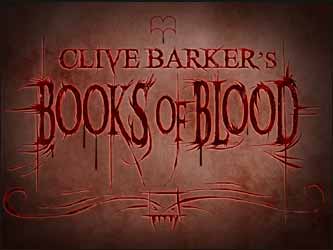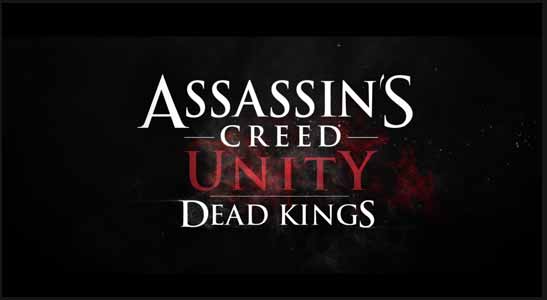|
Click here to return to the main site. Cris Velasco (composer)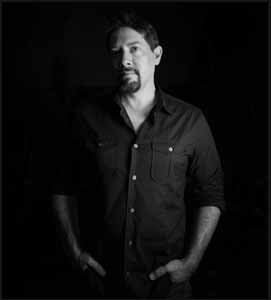 Cris Velasco is a multiple award-winning composer of epic orchestral, dark experimental and modern hybrid music scores for video games, film and television. After graduating from UCLA with a degree in Music Composition his first major release was composing for Sony’s blockbuster God of War. Velasco has become one of the most sought-after composers in interactive entertainment, scoring many major titles including Company of Heroes 2, Mass Effect 3, Borderlands 2, ZombiU, Warhammer 40,000: Space Marine, God of War 3, Tron: Evolution, Borderlands, God of War 2, Darksiders, Clive Barker’s Jericho, and many more. Darren Rea spoke with him as his score for Assassin's Creed Unity: Dead Kings was released... Darren Rea: Your score for Assassin's Creed Unity: Dead Kings is one of the most intricate and beautiful scores we've heard for quite some time. How did you originally get involved with the project and what was the original brief.
Once we got started, Manu pretty much knew exactly what he wanted from me. The franchise was taking a turn for the dark and the music needed to reflect that. Half the game takes place underground in the catacombs so I had a lot of fun coming up with interesting orchestral textures that would help bring that sense of weight and dread to the music. DR: It's another beautiful score, like your previous work on Warhammer 40,000: Space Marine, which helps provide an additional emotional boost when playing the game. When you compose for games is one of your goals to try and make an emotional connection with the gamer? CS: Yes, definitely. Whether I'm writing for game, film, or tv, I always try to make an emotional connection with the audience. The tricky part is to do it without them realizing you're doing it. You don't want the music to stand out and call too much attention to itself. At the same time, I don't want the music to be so subtle that it won't work as a standalone listening experience. It's a fine line to accomplish both. It's something I always try to do, but I guess it's up to the players to decide if I've been successful. DR: Do you ever worry about writer's block? When you're not working on a project do you come up with the bare bones of themes that you can remould for future projects?>
I actually do not have a notebook full of ideas to be used later. Fortunately, I've been very busy the last few years so I just don't have the time for this. But secondly, I like the project to inspire the music. I really don't love the idea of trying to force a melody into a project just because I like it and have it laying around. DR: What would you say was the hardest segment of music to write for Assassin's Creed... Is there much difference working in the game's industry as for films? And do you think that division is getting more and more blurred as time goes by? CS: I think the combat music was the hardest part for me. Without going into too much detail, there was a very specific formula for writing these. The entire cue had to work as a whole, but there were also individual segments within the piece that needed to be standalone looping cues. It was a bit tricky to get my head around at times and make sure everything worked seamlessly. You can hear what I'm talking about in the tracks 'Welcome to Saint Denis' and 'Meet the Raiders'.
DR: What was it like working with Clive Barker? Is he a director that understands and appreciates the role of music? CS: You only need to look back at some of the composers he's used on previous projects - Chris Young, Danny Elfman, Phillip Glass. Clive is someone that has an immense amount of respect for music. I'd like to think that music inspires his art the way his novels inspire my own writing. DR: You originally worked with him for the 2007 game Jericho, and now you'll be working on the digital comic version of his Books of Blood. Did Barker have a clear idea of what he wanted from the music? CS: I worked with Clive and Ben Meares at Seraphim Films to capture the sound of Books of Blood. Ben is the project leader on this series and has been working with Clive for a long time to get this just right. Mostly though, they let me step in and establish the musical tone from the beginning. We're only two episodes into the whole series at this point. I'm sure the music will continue to grow and evolve.
CS: I'd like to think that I haven't written it yet! I constantly strive to improve as a composer with each new project. I go through phases of pieces I like and others that I wish I could go back and revise. I guess if I were to lock something away right this minute, I'd probably choose the Main Theme to Books of Blood. I'm pretty happy with how that one turned out. DR: What future projects are you currently working on? CS: Besides my ongoing collaboration with Clive Barker on the Books of Blood, I'm also working on a number of games. I'm currently scoring two post-apocalyptic projects. One is The Long Dark. A visually stunning game by Hinterland Studio that pits you against the unforgiving terrain of the Canadian wilderness. Cold, hunger, and wolves are the biggest threats to your survival. The other is H1Z1 and it's a whole other ballgame. This one is being developed by Daybreak Games and has you struggling for survival amongst the zombie hordes. They both have completely contrasting styles of music so it really keeps things fun. I'm also working on some other game projects now, but I'm still not allowed to discuss them. Maybe after E3!
The soundtrack to Assassin's Creed Unity: Dead Kings is released by Ubisoft Music as a digital album on 13 January 2015. Click here to buy this digital album - Amazon.co.uk Return to... |
|---|
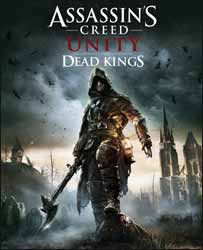 Cris Velasco: Thank you so much! It was so fun and such an honour to be able to work on this amazing franchise. I've worked with Ubisoft audio director Manu Bachet for many years. Most recently, I had scored ZombiU for him. Manu called me at home one day and asked if I had time to work with him. I said yes before I even knew what the project was. It was such a shock to learn it was Assassin's Creed!
Cris Velasco: Thank you so much! It was so fun and such an honour to be able to work on this amazing franchise. I've worked with Ubisoft audio director Manu Bachet for many years. Most recently, I had scored ZombiU for him. Manu called me at home one day and asked if I had time to work with him. I said yes before I even knew what the project was. It was such a shock to learn it was Assassin's Creed! 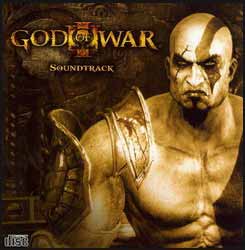 CS: I'll definitely suffer from writer's block at times. When I'm under a strict deadline though, there's really no time to wait for inspiration. I've learned to just leave my studio for a bit and take a drive, or go for a jog, or even just do some gardening outside. Anything to take my mind off music for a bit. Usually, during these moments of mild concentration on something else, a solution will come to me.
CS: I'll definitely suffer from writer's block at times. When I'm under a strict deadline though, there's really no time to wait for inspiration. I've learned to just leave my studio for a bit and take a drive, or go for a jog, or even just do some gardening outside. Anything to take my mind off music for a bit. Usually, during these moments of mild concentration on something else, a solution will come to me.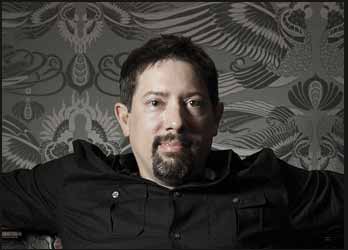 First of all, my schedule on a game is generally much more lenient than on a film. There are a few exceptions where I had to work extra fast on a game. Clive Barker's Jericho comes to mind. I had around three weeks to write, record, and produce about two hours of music. Another big difference between these mediums is of course one is linear and one is not. I actually find it much easier to write for films because the pacing of the movie will dictate how the music is written. Games are so much more open to interpretation. Each piece I write is almost composed in a vacuum, with only artwork to look at for inspiration. It allows me to possibly be more creative, but it's also a lot harder.
First of all, my schedule on a game is generally much more lenient than on a film. There are a few exceptions where I had to work extra fast on a game. Clive Barker's Jericho comes to mind. I had around three weeks to write, record, and produce about two hours of music. Another big difference between these mediums is of course one is linear and one is not. I actually find it much easier to write for films because the pacing of the movie will dictate how the music is written. Games are so much more open to interpretation. Each piece I write is almost composed in a vacuum, with only artwork to look at for inspiration. It allows me to possibly be more creative, but it's also a lot harder.